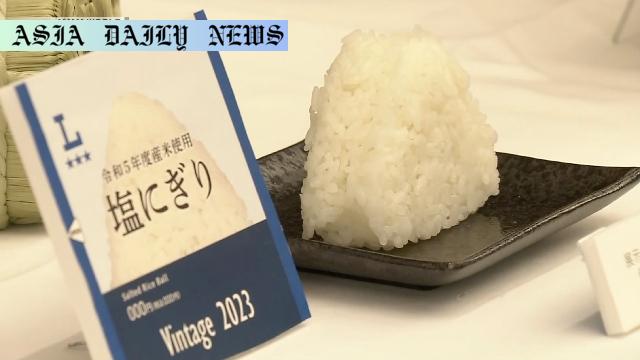Rice: Lawson to sell small lots of government rice at affordable prices, targeting consumers with smaller product needs.
Lawson will sell small bags of government-stockpiled rice to meet consumer demand.
The convenience store will offer lower-cost onigiri rice balls using 2022 and 2023 crops.
The initiative targets seniors and single-person households with smaller portion options.

Lawson’s Initiative to Meet Consumer Needs
The Japanese convenience store chain Lawson has embarked on a path to make rice more accessible and affordable by introducing smaller portion sizes. With the recent increase in commodity prices, including rice, Lawson has chosen to leverage government-supplied stockpiles and release them in 1-kilogram and 2-kilogram bags. This initiative is a significant effort to cater to the needs of modern consumers, especially seniors and individuals who live alone, who often require smaller grocery portions. By offering these smaller and more economical options, Lawson is not only addressing a financial constraint but also promoting efficiency in resource consumption, preventing waste among its customer base.
Tackling Price Fluctuations in Essential Goods
The Japanese government has been steadily releasing its rice reserves amidst rising food prices, a move aimed at stabilizing market trends and ensuring that staples remain accessible to the public. Lawson’s decision to sell 1-kilogram bags of rice at 360 yen (approximately $2.50) and 2-kilogram bags at 700 yen aligns with this strategy. These affordable price points are set to enable families and individuals to access high-quality, essential food items without putting undue strain on their budgets. Additionally, Lawson is introducing affordable rice balls, or onigiri, sourced from the 2022 and 2023 harvests, which have seen an approximate price increase of 18% compared to last year. This manuever balances affordability without compromising quality, serving as an example of corporate responsibility in a time of economic unpredictability.
Embracing Change: A Model for Modern Retail
As a retailer renowned for its quick adaptability to consumer needs, Lawson continually emphasizes the importance of providing value-packed products tailored for diverse customer demographics. President and CEO Takemasu Sadanobu has highlighted the growing reliance of seniors and urban dwellers on Lawson’s services. By incorporating smaller-sized packaging into its portfolio, the company aligns itself with consumer expectations and addresses a critical market gap. Furthermore, Lawson’s innovative approach cements its position as a leader in understanding the complexities of Japan’s aging population and the increasing prevalence of single-household living trends. These initiatives also put focus on mindful consumption, as smaller portions help reduce food waste, especially when household members are few.
Collaborative Efforts in the Convenience Store Sector
Lawson is not alone in its endeavor to revolutionize the accessibility of rice. Competitor FamilyMart has also announced its intention to sell government-released rice in compact packages earlier this month. This trend suggests a collaborative understanding among Japanese retailers of the importance of affordability, accessibility, and portion-conscious consumer choices. As competitive as the convenience store sector may be, this unified approach demonstrates the industry’s commitment toward addressing broader socioeconomic challenges such as inflation and shifts in demographic patterns. These measures have rendered convenience stores as trusted allies for consumers navigating budgetary challenges, solidifying their place as essential providers in Japan’s daily life.



Commentary
Lawson Redefines Convenience in Changing Times
Lawson’s decision to introduce smaller rice portions is a thoughtful move that acknowledges the changing demographics and financial constraints faced by many consumers in Japan. The reliance on government-supplied rice not only highlights the importance of public-private collaboration but also demonstrates the company’s ability to pivot and meet the demands of its customer base. By targeting seniors and single-person households with this innovative product offering, Lawson showcases its understanding of the evolving needs of its customers and its commitment to remaining relevant in a modern market.
Affordability Meets Innovation
The affordability of Lawson’s smaller rice bags and low-cost onigiri options is commendable at a time when global inflation is impacting the cost of essentials. The company’s ability to source rice from government stockpiles and offer it at competitive prices addresses an immediate need for budget-friendly solutions. This decision not only benefits individual customers but also strengthens Lawson’s reputation as a responsive and consumer-focused retailer. It also reaffirms its position as a reliable partner for customers seeking affordable, high-quality products amidst fluctuating market conditions.
A Model for the Future of Retail
Lawson’s strategy sets a benchmark for the retail industry to follow. By focusing on sustainability through reduced food waste and addressing societal issues such as rising costs and demographic changes, Lawson exemplifies the role that convenience stores can play in fostering resilience at the community level. The introduction of smaller portions may seem like a simple change, but it symbolizes a significant shift toward mindful consumption and consumer-oriented planning. Other sectors can certainly learn from Lawson’s proactive and empathetic approach, which balances profit with social responsibility and customer care.